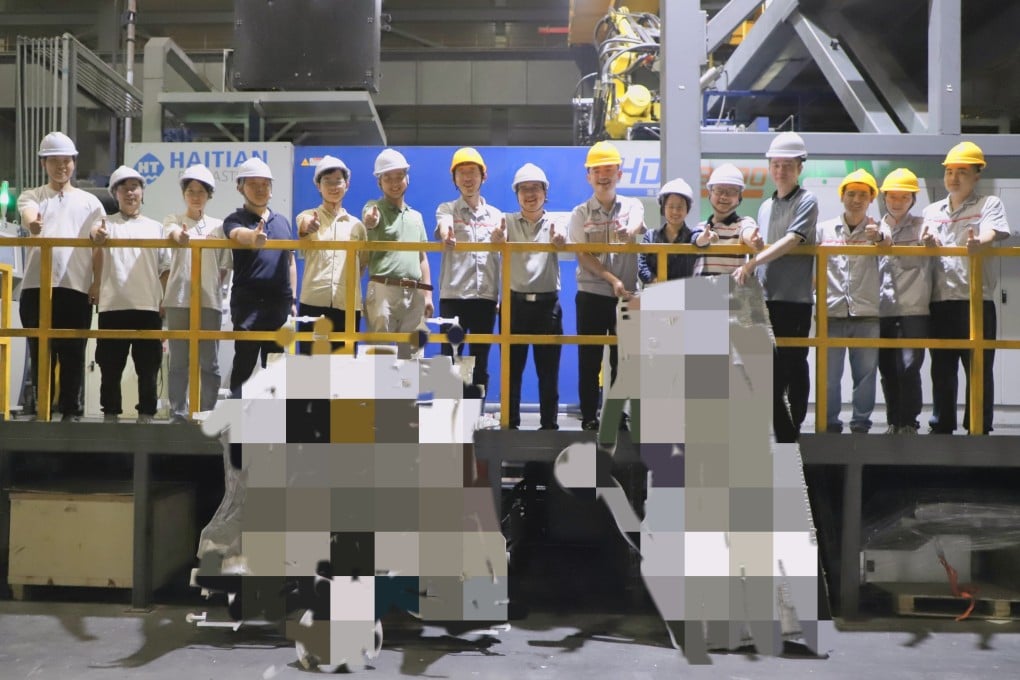Advertisement
Chinese scientists say supersized magnesium parts pave the way for cheaper, lighter cars
- Researchers in China produce giant car parts using technology similar to Tesla’s ‘gigacasting’ – a process that has cut production times and costs
- Magnesium alloys could absorb impacts and offer advantages over more common aluminium-based materials, professor says
Reading Time:3 minutes
Why you can trust SCMP
5

Zhang Tongin Beijing
Researchers in China say they have developed supersized magnesium alloy auto parts that could significantly reduce the cost of making cars and promote lightweight vehicle designs.
The scientists produced the two giant parts – a car body and a battery box cover – from a single mould in one casting.
Each part measures over 2.2 square metres (23.7 sq ft) – the first of their size to be made from magnesium alloy, according to a news release from the National Engineering Research Centre for Magnesium Alloys (CCMg) at Chongqing University on June 27.
Advertisement
“Magnesium alloys are about 30 per cent lighter than mainstream aluminium alloys and 70 per cent lighter than steel. Lighter auto parts can lead to an increase in car range and effectively alleviate ‘range anxiety’ for electric vehicles,” said Jiang Bin, a professor with the research centre, in an interview on Monday.
China holds more than 70 per cent of the world’s magnesium resources, and it has accounted for more than 80 per cent of the world’s output of magnesium and magnesium alloy for the past decade-plus, according to Jiang.
Advertisement
Advertisement
Select Voice
Choose your listening speed
Get through articles 2x faster
1.25x
250 WPM
Slow
Average
Fast
1.25x